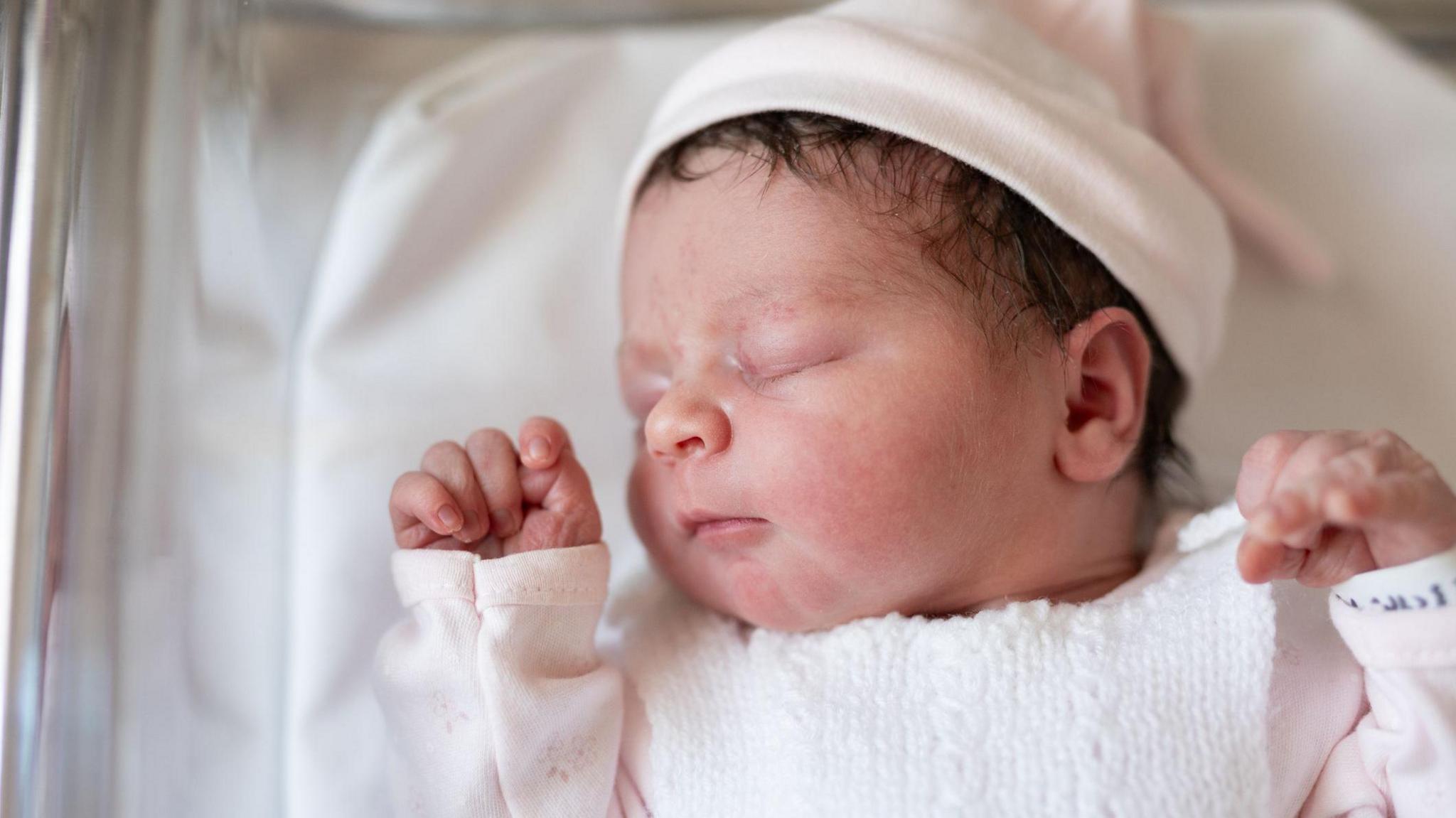Babies with infections treated at home in trial
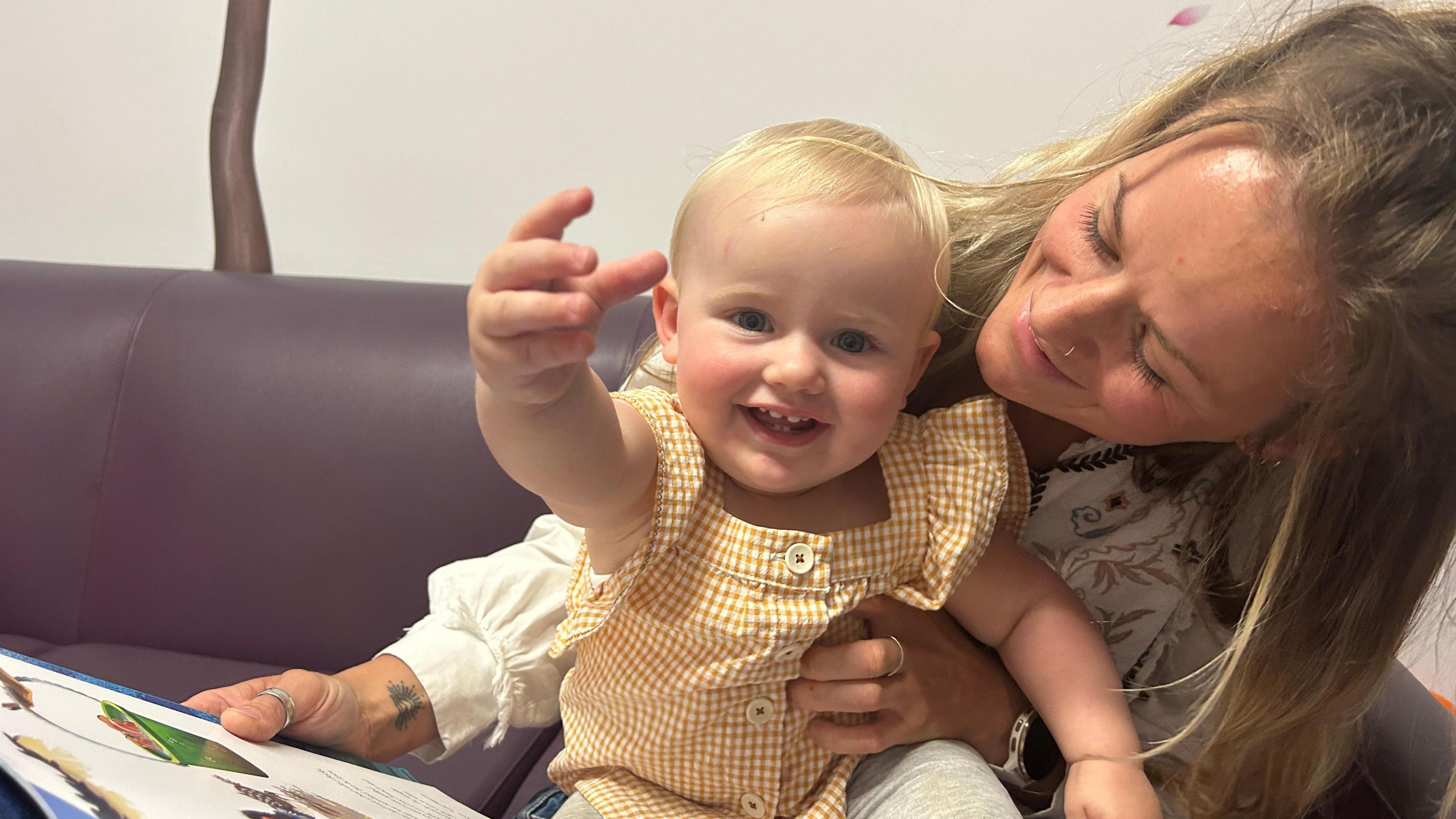
Eligible newborn babies can go home instead of having to stay in hospital
- Published
A new project means eligible newborn babies who develop an infection can be treated at home with oral antibiotics, instead of having to stay in hospital.
Traditionally, babies suspected of having early-onset infections have faced a longer hospital stay, receiving intravenous (IV) antibiotics for up to seven days.
The Noah (Neonatal Oral Antibiotics at Home) project means eligible babies can safely switch to oral antibiotics after as little as two days in hospital and continue their treatment at home.
Following a six-month pilot at the Royal Devon University Healthcare NHS Foundation Trust (RDUH), Noah is now part of routine care, with the potential for national roll-out.
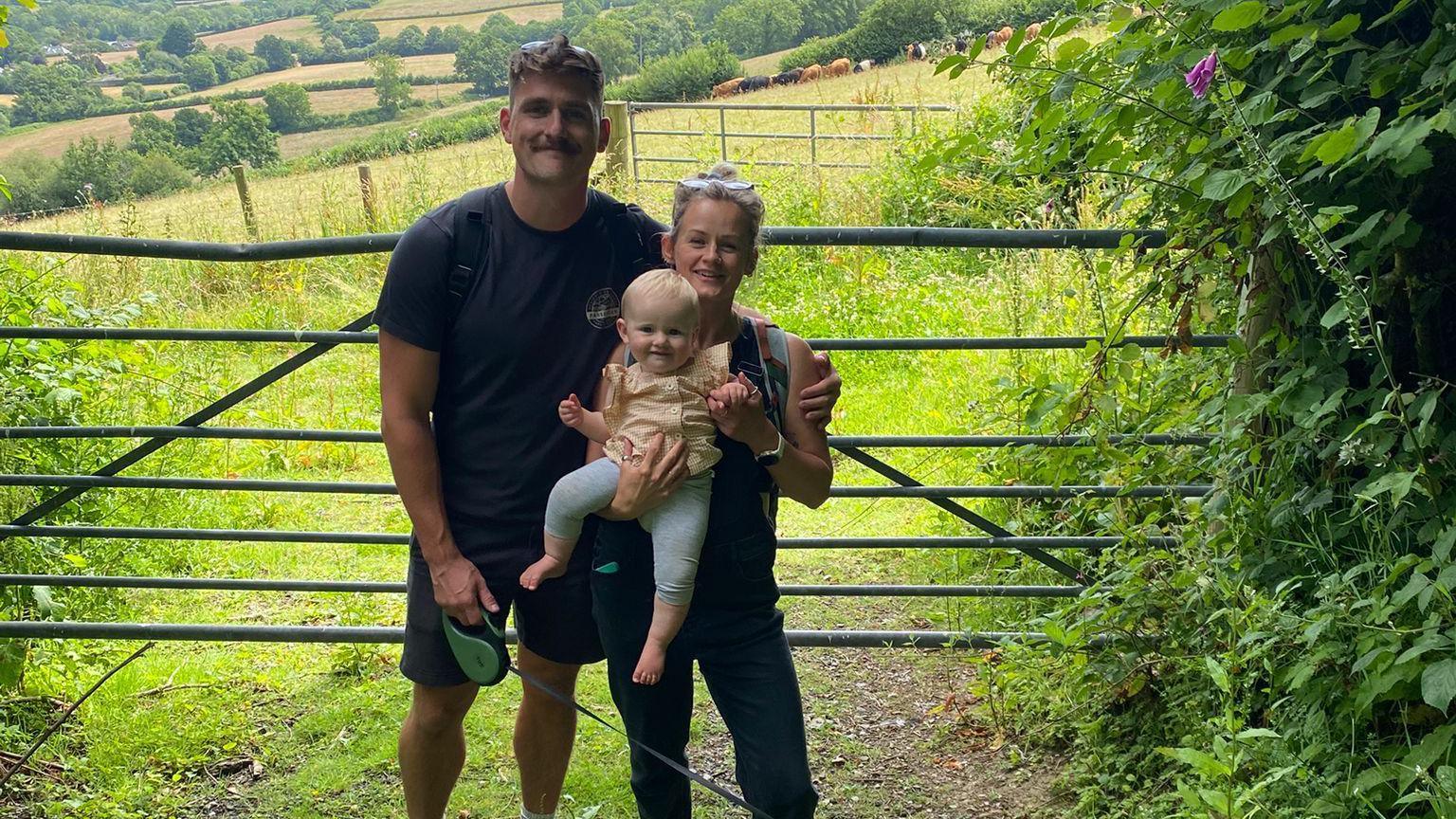
For new parents Emily and Harry, they say the project made all the difference
Emily Jeffery, 35 of Woodbury, Devon, said: "After my home birth, I was told I would have to be transferred to hospital because there was meconium in my waters. I was devastated.
"To be able to come home with antibiotics for Luna during my first few days as a mum made all the difference for us as a family.
"It meant we could be together, especially since my partner was on summer leave from the military. We had such a short time together, and I'm so grateful for that precious time as a family."
Parents are shown how to give their babies the oral antibiotics while still in hospital and have to prove they can effectively administer them before they can go home.
They are then given follow-up calls to make sure their child is recovering.
"The follow-up care is amazing. We got phone calls to make sure everything was going OK. That she wasn't showing signs of the infection coming back. She's recovered well from it and is doing really well," Ms Jeffery added.
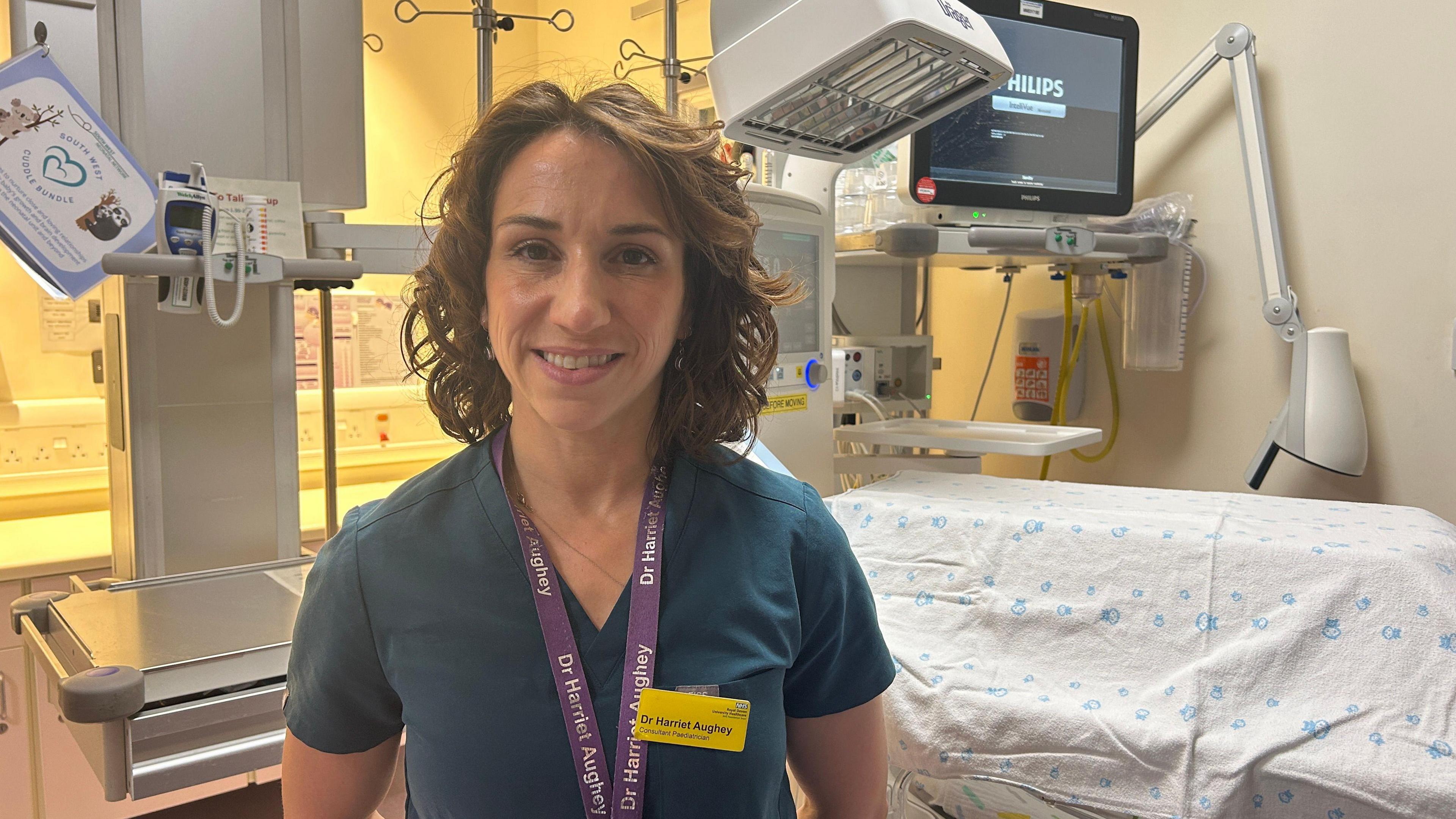
Neonatal paediatrician at the Royal Devon and Exeter Hospital and co-lead on the project, Harriet Aughey
Neonatal paediatrician at the Royal Devon and Exeter Hospital and co-lead on the project, Harriet Aughey: "This project allows a certain cohort of our babies, who have suspected early onset infection, to switch from five days of intravenous antibiotics to having oral antibiotics at home.
"It's new for the UK and very exciting."
The initiative is being rolled-out across south-west England and is being adopted by some other trusts around the country.
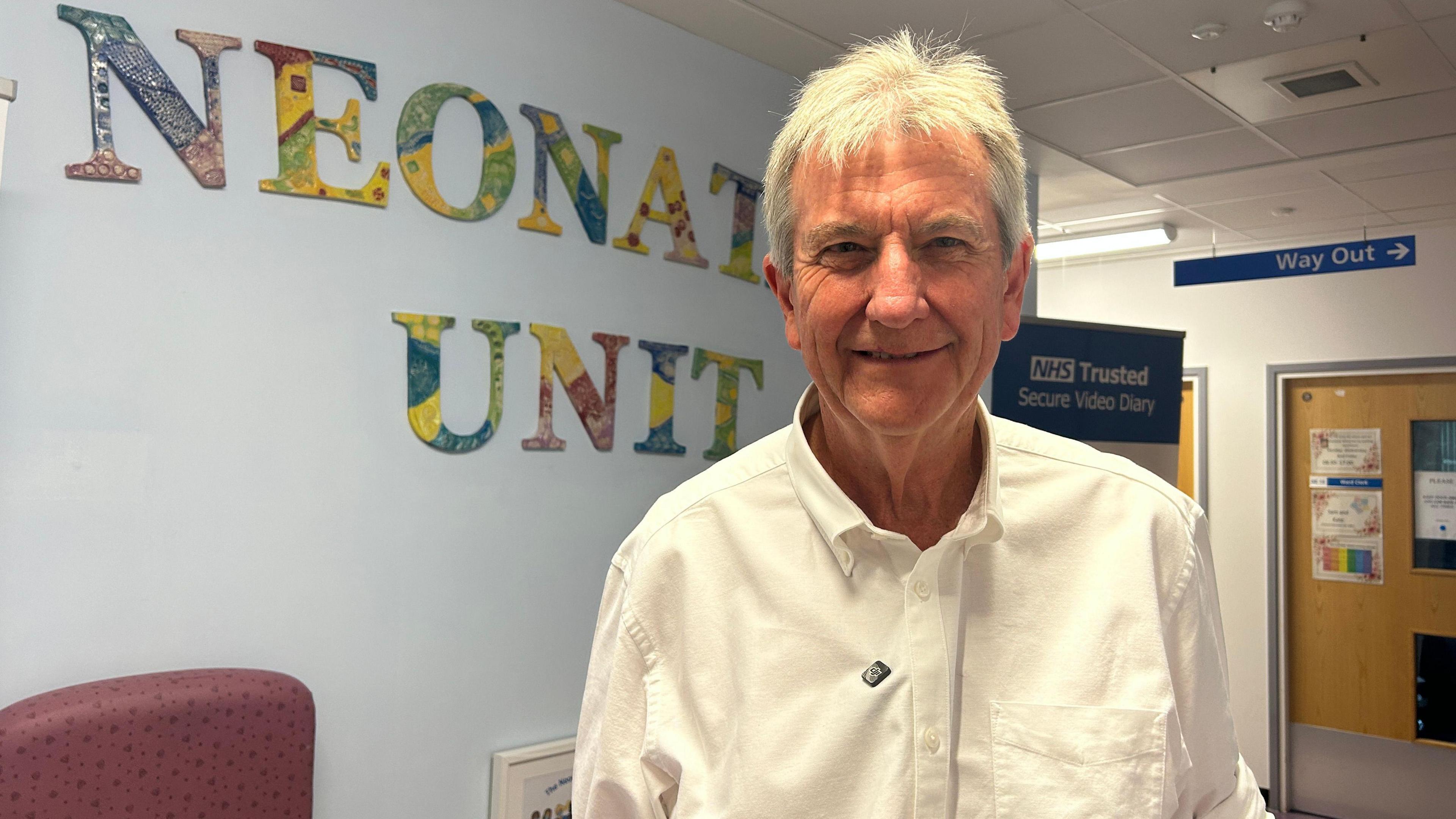
Prof Stuart Logan says the changes reduced pressures in hospital and saved the NHS money
Prof Stuart Logan, director of the National Institute for Health and Care Research Applied Research Collaboration (NIHR ARC) South West Peninsular, added the changes reduced "pressure" on neonatal units.
"It saves money for the NHS. We estimate if we roll this out nationally, we could save about £12m a year for the NHS."
The project is a collaboration between the hospital, Health Innovation South West, the NIHR ARC South West Peninsula and the South West Neonatal Network.
Dr Aughey added the initiative meant "we are able to avoid having to transfer the sicker babies outside the region for care because we have that capacity in the region".
"The knock on effect of this project is really significant."
Related topics
- Published2 June
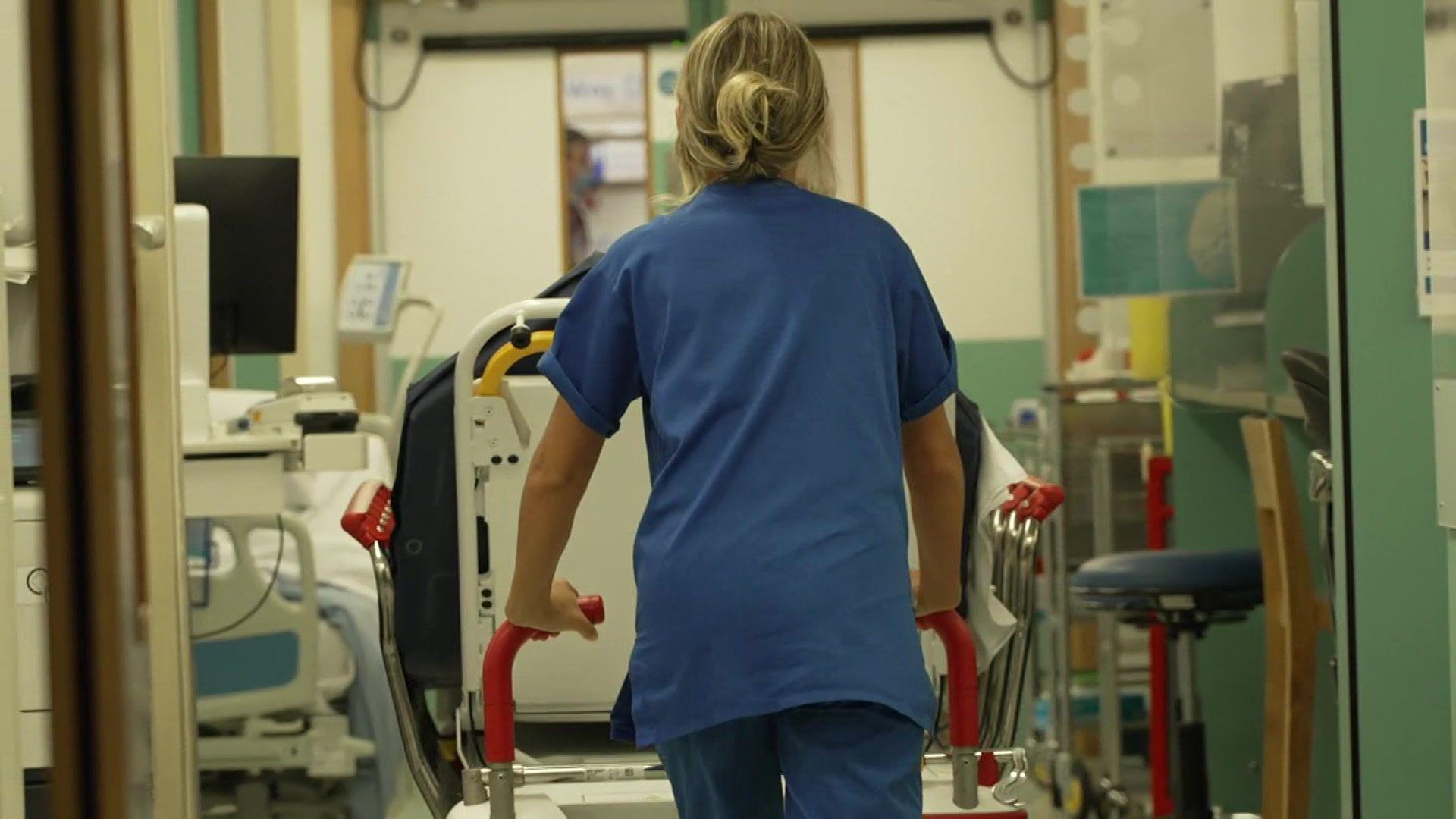
- Published21 June
